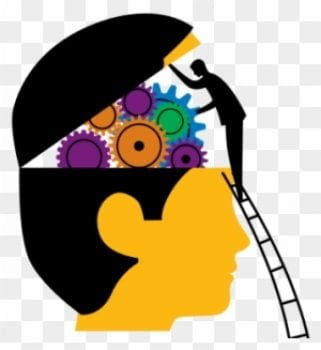The other day an old friend of mine called. As we were catching up after a few years, she being my schoolmate, we got talking on various subjects. During this conversation, she told me that her brother was planning to see a psychiatrist as he had certain relationship issues and was depressed. She asked me if I knew of a good psychiatrist. My question to her was “why did he decide to go to a psychiatrist? Why, not a psychologist”. She said- “Isn’t it the same thing?”
I was not surprised at all as long back this realization had dawned on me that people often use the terms “psychiatrist” and “psychologist” interchangeably — an easy mistake to make as they are not familiar with the field. And so, I explained the difference between psychologists and physiatrists to her, informing her that though both of them treat patients struggling with mental health on a one-on-one basis, the main difference between the two professions was the kind of education, training, and scope of practice both received. I decided to script the conversation that took place between her and me so that it can be of help to all who would like to clear their doubts regarding the same.
“So for Psychology what is the study to be done?”
Psychologists must earn a bachelor’s degree, a master’s degree, and a doctoral degree in psychology, along with doing various therapy courses, as per their interest.
Psychiatrists will have one of two medical degrees: doctor of medicine (MD) or doctor of osteopathic medicine (DO). They’ll also have advanced qualifications from residency and a specialty in psychiatry.”
“Other than the education, what is the basic difference between the two then?”
“Psychiatry is a branch of medicine focused on diagnosing and treating mental health disorders.
Psychiatry refers to a specific branch of medicine that focuses on the causes, prevention, diagnosis, and treatment of mental health conditions.
Generally speaking, the field of psychiatry rests on the idea that biological factors, like genetics, lead to the development of mental and emotional health symptoms.
Psychiatrists recognize that social and environmental factors can also play a role, but they typically approach mental health symptoms from a biological angle. They have training in many related fields, including:
- genetics
- biochemistry
- neurology
- psychology
- social science
- psychopharmacology (the effects of medications on mood and mental health)
Psychiatrists might prescribe medication to treat:
- anxiety disorders
- attention deficit hyperactivity disorder (ADHD)
- bipolar disorder
- major depression
- post-traumatic stress disorder (PTSD)
- schizophrenia
- substance use disorders
Of course, one might prefer to try addressing one’s symptoms with therapy rather than medication. If someone is dealing with serious symptoms, though, then the therapist may recommend consulting a psychiatrist to explore medication options
Compared to psychiatrists, psychologists tend to focus more on social, cultural, and environmental factors instead of biological ones. They help identify negative thought patterns and other areas of brain function that might affect your behavior and emotional health, along with key environmental or life stressors that also play a part.
Psychology is the study of the mind, emotions, and behaviors. Psychology counselors examine the cognitive and social factors that influence people’s actions and reactions and employ a variety of therapeutic techniques to help patients heal from trauma and improve their mental health.
Often, psychologists use therapy to help address and treat mental health symptoms.”
“ How to decide who to go to for treatment?”
“Yes it is difficult to decide for people who do not know about the two as plenty of different mental health professionals exist, so you have a pretty big field to choose from. But the types of support and treatment they offer can vary quite a bit, depending on their specific profession, credentials, training, and education.
It can be tricky to determine the type of mental health professional that is best for you. If you think you have a serious mental health condition, such as bipolar disorder or schizophrenia, consider seeing a psychiatrist.
As a general rule, seeing a psychological counselor or clinical psychologist is a good place to start. Talk therapy can help you process trauma and give you tools to deal with stress, depression, and anxiety without medication. If your therapist determines that therapy alone is not improving your symptoms, then you may consider seeing a psychiatrist.
Clinical psychologists are doctors in the sense that they attend graduate school and obtain a doctoral degree. However, they are not medical doctors like psychiatrists.
And let me tell you that psychologists are also trained to diagnose mental illnesses.”
“And what about the treatment both provide?”
“ Thought their titles sound similar, and they do both help diagnose and treat people living with mental health conditions. Yet they provide this support in different ways.
Both psychologists and psychiatrists can provide psychotherapy. However, most psychiatrists treat patients primarily by prescribing medication, while psychologists mainly rely on providing talk and/or behavioral therapy, providing a space to share emotional distress and mental health symptoms you experience, over a series of sessions. They can offer guidance and support with understanding these symptoms and teach coping skills to navigate them.
Talk therapy can take many forms, including:
- one-on-one therapy
- couples therapy
- family therapy
- group therapy
You’ve probably heard of cognitive-behavioral therapy (CBT), one of the most common types of talk therapy. CBT aims to help people in therapy learn and practice specific techniques to work through unwanted emotions and negative thought patterns.
But plenty of other types of therapy exist. Psychologists can specialize in a range of approaches:
- humanistic psychology
- child psychology
- psychodynamic therapy
- emotion-focused therapy
- art therapy
- Hypnotherapy
- mindfulness-based therapy approaches
- mentalization-based therapy
- schema therapy
Psychologists working with children might also assess their thinking skills and academic capabilities and offer approaches uniquely suited for children, like play therapy.”
“Though I understand all that you have explained and have a better understanding of the difference between the two, I am still not sure of who to go to when facing mental health problems….”
“Often, your specific symptoms and situation can guide your search.
If you’re going through a difficult time or want to work on better understanding your thoughts and behaviors, a psychologist may be a good option.
You might also prefer to consult a psychologist if you want to treat your symptoms with therapy rather than a combination of therapy and medication. Just know they might recommend connecting with a psychiatrist if they believe your symptoms may not improve with therapy alone.
A psychiatrist may be a better choice if you have more complex mental health concerns that might require medication, including:
- severe depression
- bipolar disorder
- schizophrenia
Psychiatrists can also offer additional treatment recommendations when therapy doesn’t lead to much improvement.
Keep in mind that mental health professionals might recommend a combination of therapy and medication to treat symptoms of many common mental health conditions, including depression and anxiety. If therapy doesn’t seem to have much effect, it could be worth reaching out to a psychiatrist — medication could make more of a difference in your symptoms.
Psychiatrists usually don’t provide ongoing talk therapy. If you reach out to a psychiatrist first, they’ll likely encourage you to work with a therapist at the same time. They can offer a referral or connect you with resources to find the right therapist.”
Whichever specialist you choose to see, it always helps to make sure they have:
- experience treating your type of mental health condition
- an approach and manner you feel comfortable with. It’s absolutely OK to “shop around” until you find someone who feels like a good fit
- enough open appointments so you can schedule regular sessions
“This does give me a better understanding of Mental health practitioners. While talking to you, I am reminded of another friend of mine who had taken her child to a healer for her mental health problems, as her teenage child was sure that she will not take any medication for her treatment as she did not want to go through any side effects of the medication. And the daughter was not ready for any talk therapy either. They did not realize that a psychologist has many tools to use for therapy. Though the healing did help her daughter, every now and then the problem surfaces. Will sure tell her to ask her daughter to visit a psychologist now.”






